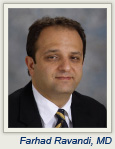 Despite Advances, Little Overall Improvement Seen in Treatment of Older Adults with AML
Despite Advances, Little Overall Improvement Seen in Treatment of Older Adults with AMLBy Charles A. Schiffer, MD
The outcome of treatment of older adults with acute myeloid leukemia (AML) remains unsatisfactory, although certainly not a totally futile exercise. Patients satisfying the entry criteria for cooperative group clinical trials can be expected to have complete remission rates of 50% to 55%, with remission durations of about 9 months, albeit with long-term survival rates of only about 10%. We have seen relatively little overall improvement in outcome for this population in recent decades. Nonetheless, these patients experience considerable benefit with complete remission, not the least of which is being at home for months with safe blood counts permitting normal activities... [READ MORE]
 Conventional Induction Chemotherapy Beneficial in Only a Subset of Older Adults with AML
Conventional Induction Chemotherapy Beneficial in Only a Subset of Older Adults with AML
By Farhad Ravandi, MD
Over the past several decades, progress in the treatment of acute myeloid leukemia (AML) in the older population (generally considered to be older than 60 years) has been limited (Fig. 1). In particular, the outcome of patients over age 70 has been poor, with few long-term survivors. Although AML is predominantly a disease of older adults, until recently many of the trials had been conducted in the younger population, and much of the available data was inapplicable to the elderly... [READ MORE]

